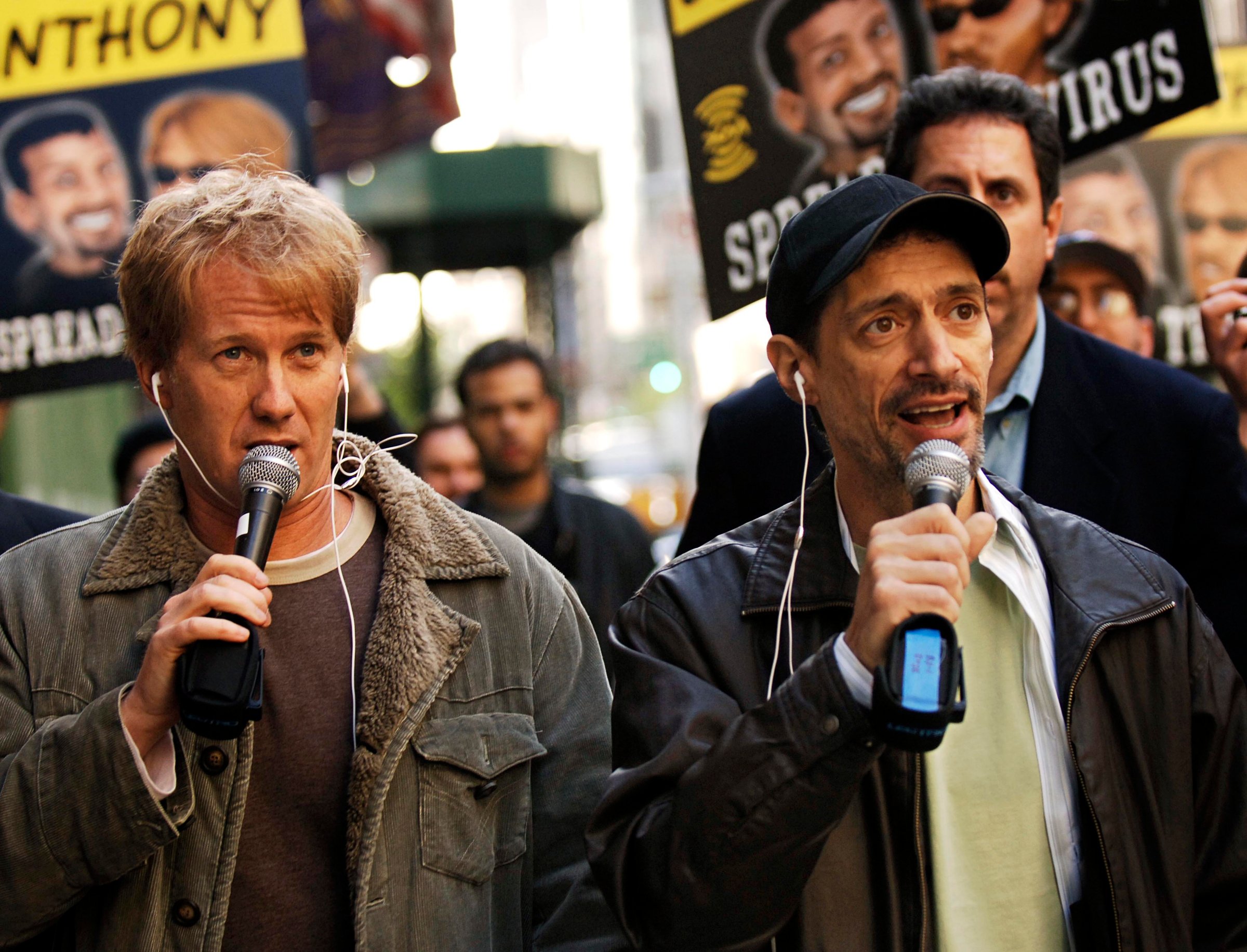
You would think that the rise of Twitter, Facebook, Instagram and other social-media platforms would be an unmitigated good for media celebrities. They are, whatever their expertise or specialty, people in the business of saying stuff, and suddenly here are all these new platforms for stuff-saying! Heaven, I call it, pure Heaven!
Indeed for many TV and radio personalities, these new outlets are a force multiplier, a way of projecting their brand into even more corners of the public consciousness. But for a few–Alec Baldwin, say–social media is less like a megaphone than an electric radio perched precariously at the edge of a bathtub, a constant invitation to instant self-Twimmolation.
In June, Man vs. Food host Adam Richman got into a curse-filled fight after an Instagram user complained that he hashtagged a weight-loss photo #Thinspiration, a tag that’s been popularized in pro-anorexia circles; the Travel Channel cancelled his new show set to premiere in early July. And last week Opie and Anthony co-host Anthony Cumia was fired by Sirius XM radio for spewing a sewer gusher of vicious racial and sexist insults on Twitter after he said he was assaulted by a black woman whose picture he took on the street in Times Square.
Richman apologized; Cumia not so much. And fans of both–as did fans of Paula Deen, Phil Robertson, and so on–cried free speech. Sorry, no. This is not a First Amendment violation; no government authority is hauling them off to jail or canceling their License to Be Famous. It is not “thought policing”: getting fired after publicly calling someone a “cunt,” as both Richman and Cumia did, is not like getting fired for questioning government policy on taxation. This is not censorship. It is a case of someone whose only job is to communicate in public doing so in such a dumb and ugly way that it is not worth it for his private employer to continue employing him.
What’s most baffling, in fact, is that this sort of thing keeps happening to people whose very job description involves talking into live microphones or otherwise living in public. There is something hypnotically dangerous about the always-on social media, especially for someone with enough followers that Twitter or Facebook amounts to a personal broadcast operation. It’s like standing on a skyscraper balcony: the views are commanding and exhilarating, but somewhere in the back of your head is the morbid thought that all you have to do is take one step forward and–whoosh!
Most people don’t, though. And for a media celebrity to expect to do it without repercussion requires a special combo of entitlement and naivete. Take Cumia’s complaint that he was “fired for shit that wasn’t even on the air & wasn’t illegal.” Right now Cumia has over 163,000 followers–that’s a cable-TV audience right there before you take into account retweets. There were negative repercussions–just as for years, as a professional shock jock, Cumia enjoyed the positive repercussions from his employer of walking up to an invisible line. It’s strange he should complain about being fired for crossing that line when the existence of a line is the only reason he has his career in the first place. It’s like a daredevil blaming the canyon he eventually crashes into.
But there’s another dimension to Richman and Cumia’s troubles, one that’s echoed in recent arguments over whether tweets should be quoted by journalists: the idea that behavior on social media, even if offensive, is not really public, not totally public, not public in a way that should cost someone a job. Social media posts are public–if you don’t use the options provided for making them private–but I can understand this complaint when it comes from someone who doesn’t do media for a living. From a radio or TV star, not so much. When you use media–be it on a major network or on your phone–to engage your audience and boost your career, you can’t decide that you only get to have the positive effects of it (say, posting a photo with your black friend after a racial controversy).
People get angry; people make mistakes; I get that. As I’ve said before, if we demand a career death penalty for every interesting but volatile personality, we are demanding a more boring world. But not everyone calls strangers the c-word in public–and someone who works in media for a living has less excuse than anyone not to understand this. The great thing about having smartphones everywhere is that everyone can be their own cameraman and publicist. But it also means that all celebrities are now their own paparazzi.
More Must-Reads From TIME
- The 100 Most Influential People of 2024
- The Revolution of Yulia Navalnaya
- 6 Compliments That Land Every Time
- What's the Deal With the Bitcoin Halving?
- If You're Dating Right Now , You're Brave: Column
- The AI That Could Heal a Divided Internet
- Fallout Is a Brilliant Model for the Future of Video Game Adaptations
- Want Weekly Recs on What to Watch, Read, and More? Sign Up for Worth Your Time
Contact us at letters@time.com